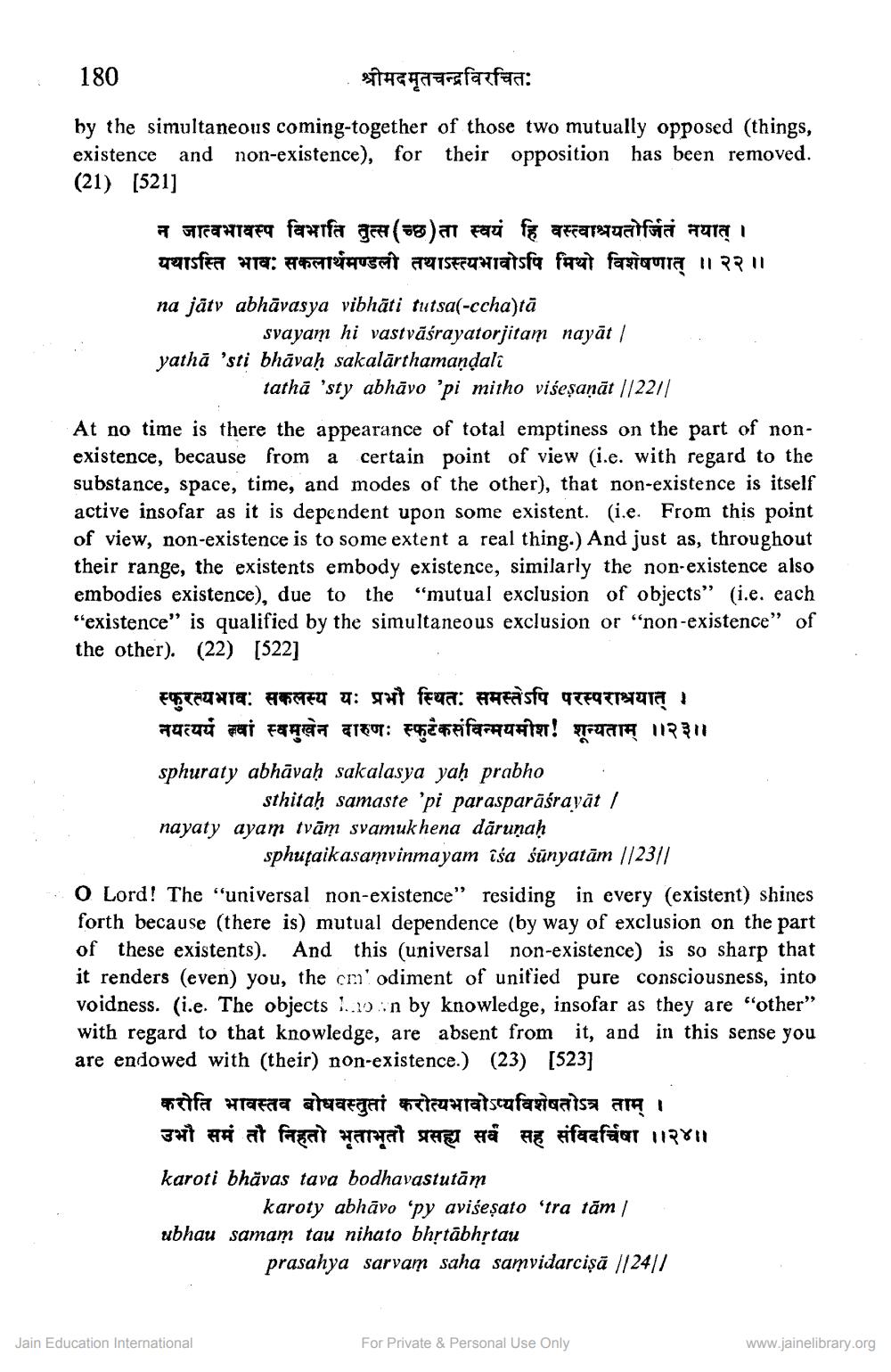________________
180
श्रीमदमृतचन्द्रविरचितः
by the simultaneous coming-together of those two mutually opposed (things, existence and non-existence), for their opposition has been removed. (21) [321]
न जात्वभावस्प विभाति तुत्स (च्छ)ता स्वयं हि वस्त्वाश्रयतोर्जितं नयात् । यथाऽस्ति भावः सकलार्थमण्डली तथाऽस्त्यभावोऽपि मिथो विशेषणात् ॥ २२॥
na játy abhāvasya vibhāti tutsa(-ccha)tā
svayam hi vastvāśrayatorjitam nayāt / yathā 'sti bhāvah sakalārthamandalı
tathā 'sty abhāvo ’pi mitho višeșaņāt //221/
At no time is there the appearance of total emptiness on the part of nonexistence, because from a certain point of view (i.e. with regard to the substance, space, time, and modes of the other), that non-existence is itself active insofar as it is dependent upon some existent. (i.e. From this point of view, non-existence is to some extent a real thing.) And just as, throughout their range, the existents embody existence, similarly the non-existence also embodies existence), due to the “mutual exclusion of objects" (i.e. each "existence" is qualified by the simultaneous exclusion or "non-existence" of the other). (22) [522]
स्फुरत्यभावः सकलस्य यः प्रभो स्थितः समस्तेऽपि परस्पराश्रयात् । नयत्ययं त्वां स्वमुखेन दारुणः स्फुटैकसंविन्मयमोश! शून्यताम् ॥२३॥ sphuraty abhāvaḥ sakalasya yaḥ prabho
sthitaḥ samaste 'pi parasparāśrayāt / nayaty ayam tvām svamuk hena dārunah
sphufaikasamvinmayam îśa śünyatām //23// O Lord! The "universal non-existence" residing in every (existent) shines forth because there is) mutual dependence (by way of exclusion on the part of these existents). And this (universal non-existence) is so sharp that it renders (even) you, the cmlodiment of unified pure consciousness, into
(i.e. The objects 1..10n by knowledge, insofar as they are "other" with regard to that knowledge, are absent from it, and in this sense you are endowed with (their) non-existence.) (23) [523]
करोति भावस्तव बोधवस्तुतां करोत्यभावोऽप्यविशेषतोऽत्र ताम् । उभौ समं तो निहतो भृताभूतौ प्रसह्य सर्व सह संविदर्चिषा ॥२४॥
karoti bhāvas tava bodhavastutām
karoty abhāvo 'py aviseșato 'tra tām / ubhau samam tau nihato bhṛtābhrtau
prasahya sarvam saha samvidarcişā //24//
Jain Education International
For Private & Personal Use Only
www.jainelibrary.org




